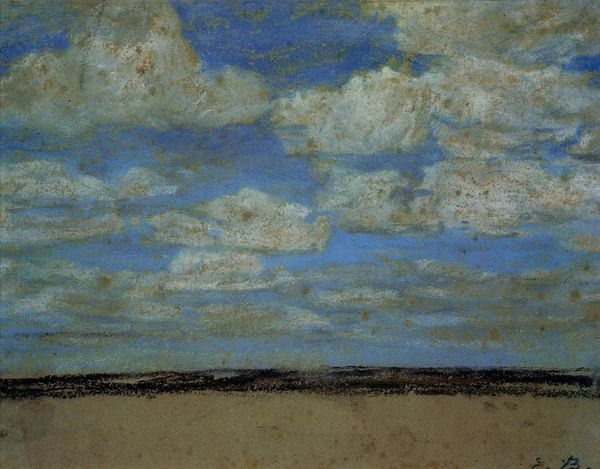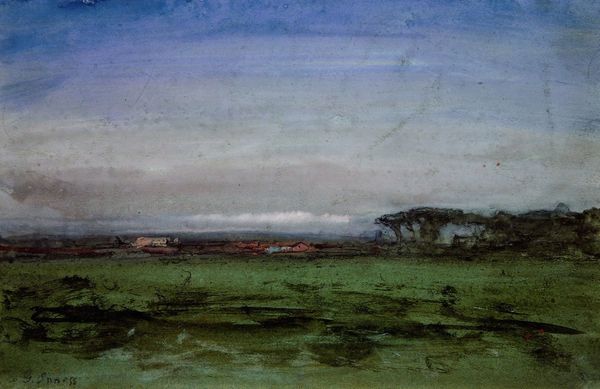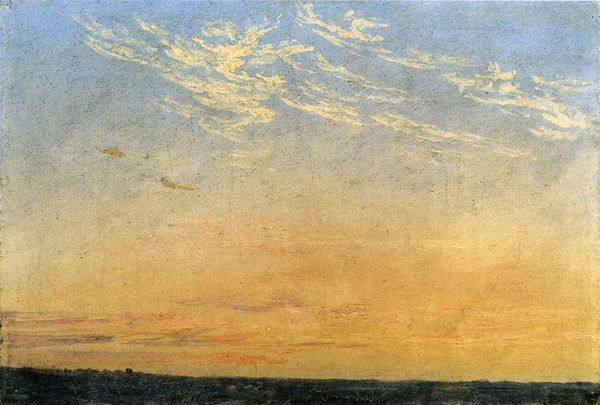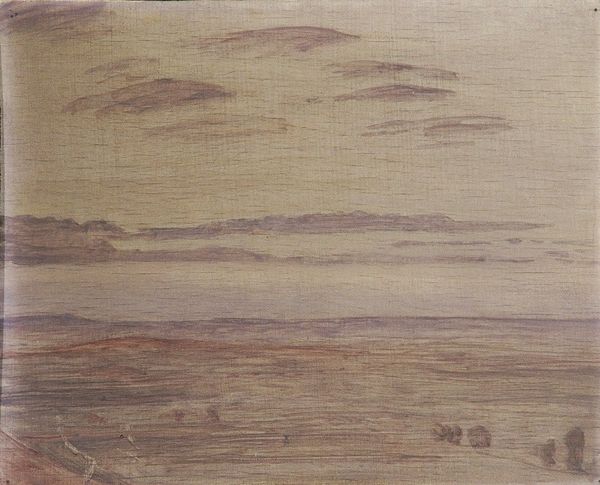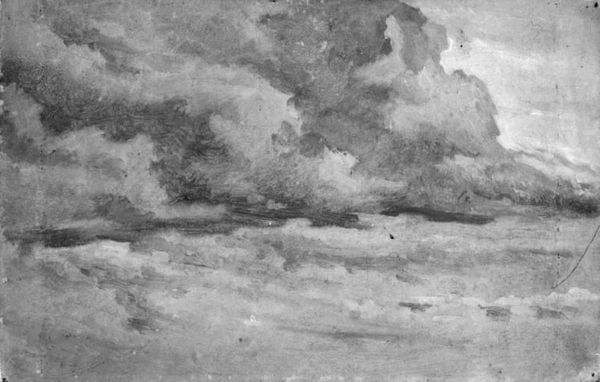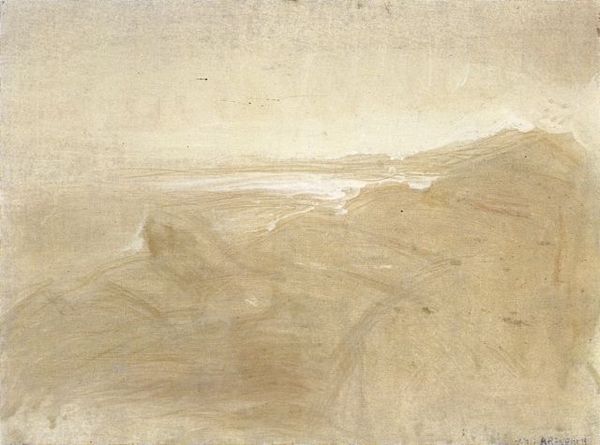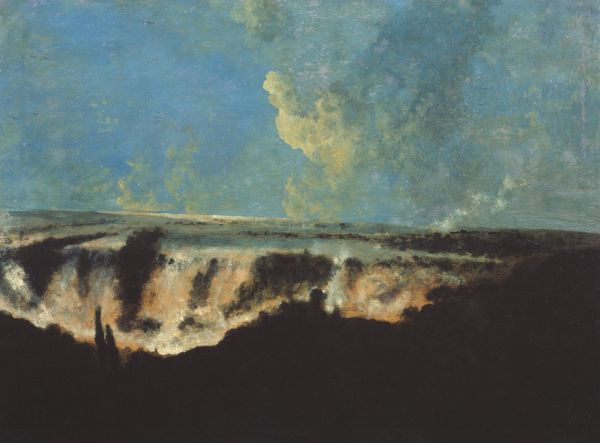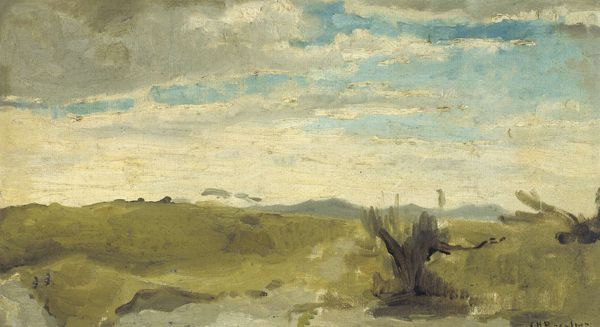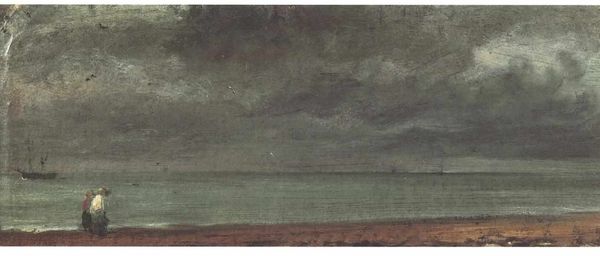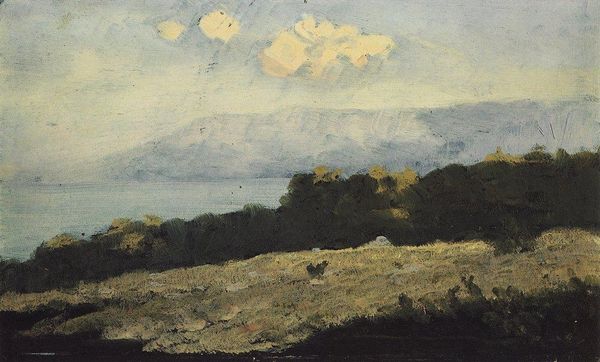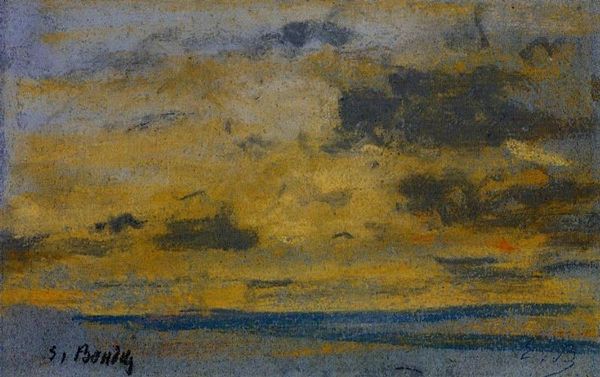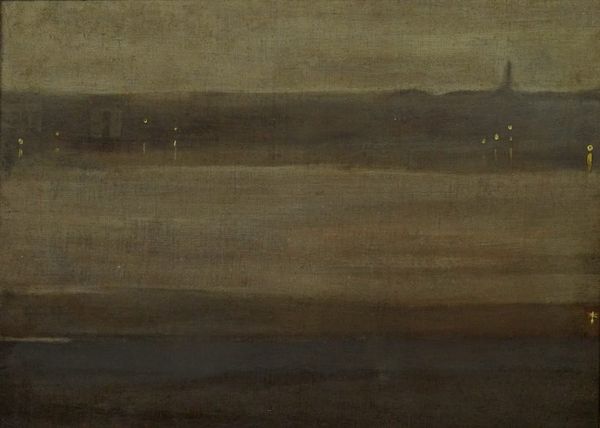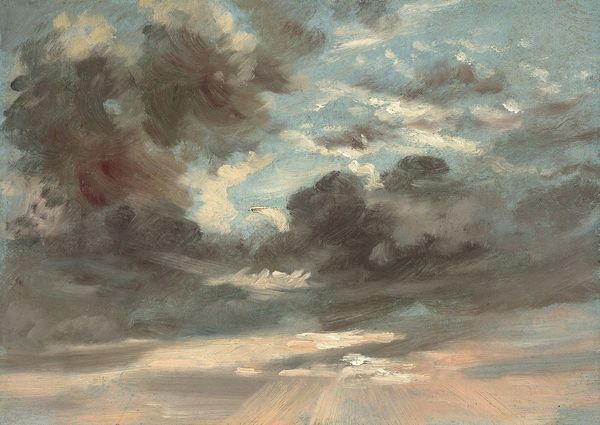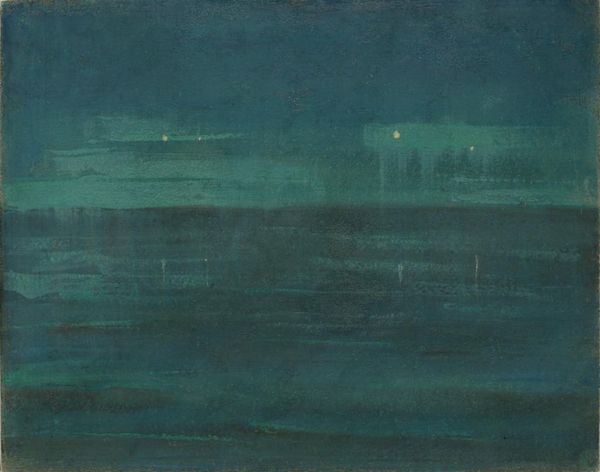
painting, oil-paint
#
painting
#
impressionism
#
oil-paint
#
landscape
#
line
#
realism
Copyright: Public domain
Editor: Arkhyp Kuindzhi's "Clouds," painted in 1875 using oil on canvas, strikes me as quite somber, almost muted. There’s a strong horizontal emphasis and sense of a vast expanse. What do you see in this piece that I might be missing? Curator: I see a commentary on the subjugation of the land. Consider the historical context. This was painted not long after the emancipation of the serfs in Russia. The vast, almost oppressive sky dwarfs the implied human presence on the horizon, doesn’t it? Editor: Oppressive? I hadn’t considered that. It seemed more…quiet. Curator: Quiet, yes, but is it a peaceful quiet or a silence born of resignation? Think about the societal upheaval of the time. The artistic circles were questioning authority, exploring identity. What do you make of the way Kuindzhi used light here, or rather the *lack* of stark contrasts? Editor: Well, the subtle gradations create a very soft effect, but it does feel…restrained. Maybe even restricted. Were there artistic limitations placed on landscape painters at the time? Curator: Not overt restrictions, but definitely a pressure to depict an idealized vision of Russia. Kuindzhi's realism, even in something as seemingly innocuous as "Clouds," arguably challenges that expectation. By focusing on the quiet struggle with the elements, with the land itself, he perhaps implicitly comments on the societal struggles too. Editor: That’s a really interesting point! So you see the landscape less as just a landscape, and more as a metaphor? Curator: Precisely. A canvas for exploring socio-political anxieties of his time. The ordinary, when examined closely, often holds extraordinary reflections of power, identity and resistance. Editor: Wow, I'll definitely look at landscapes differently from now on. It’s more than just pretty scenery; it’s about the people *in* that scenery, and what their lives might be. Curator: And the relationship between those people and the powers affecting their everyday lives. Keep asking "Why this? Why now? Who benefits?". It is a rewarding process, and leads to greater understanding.
Comments
No comments
Be the first to comment and join the conversation on the ultimate creative platform.
